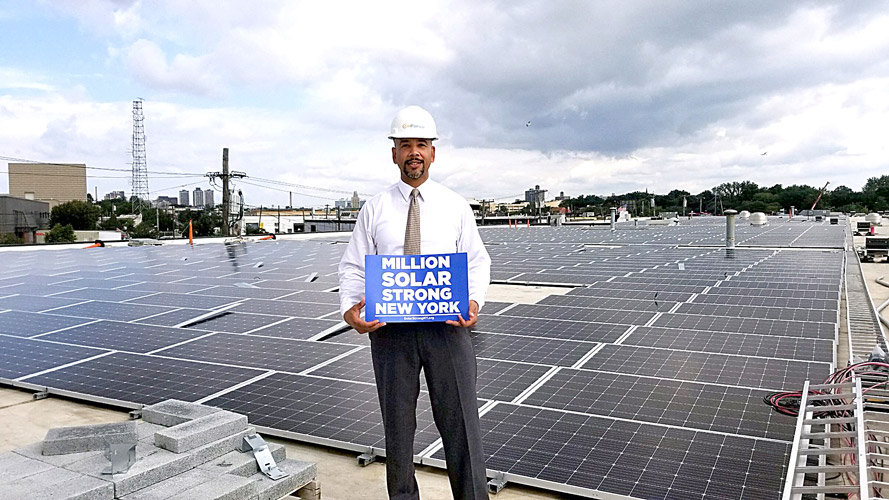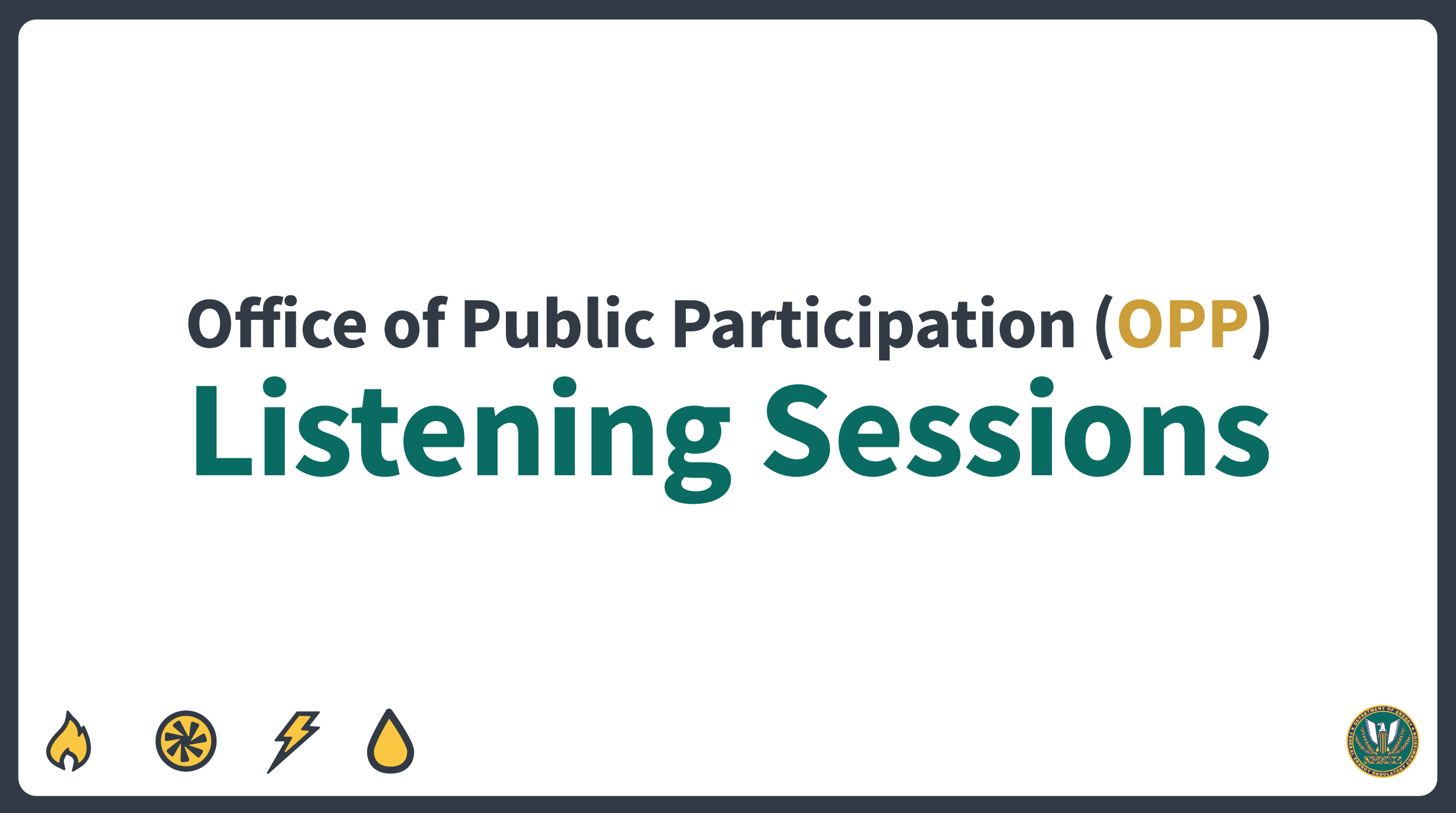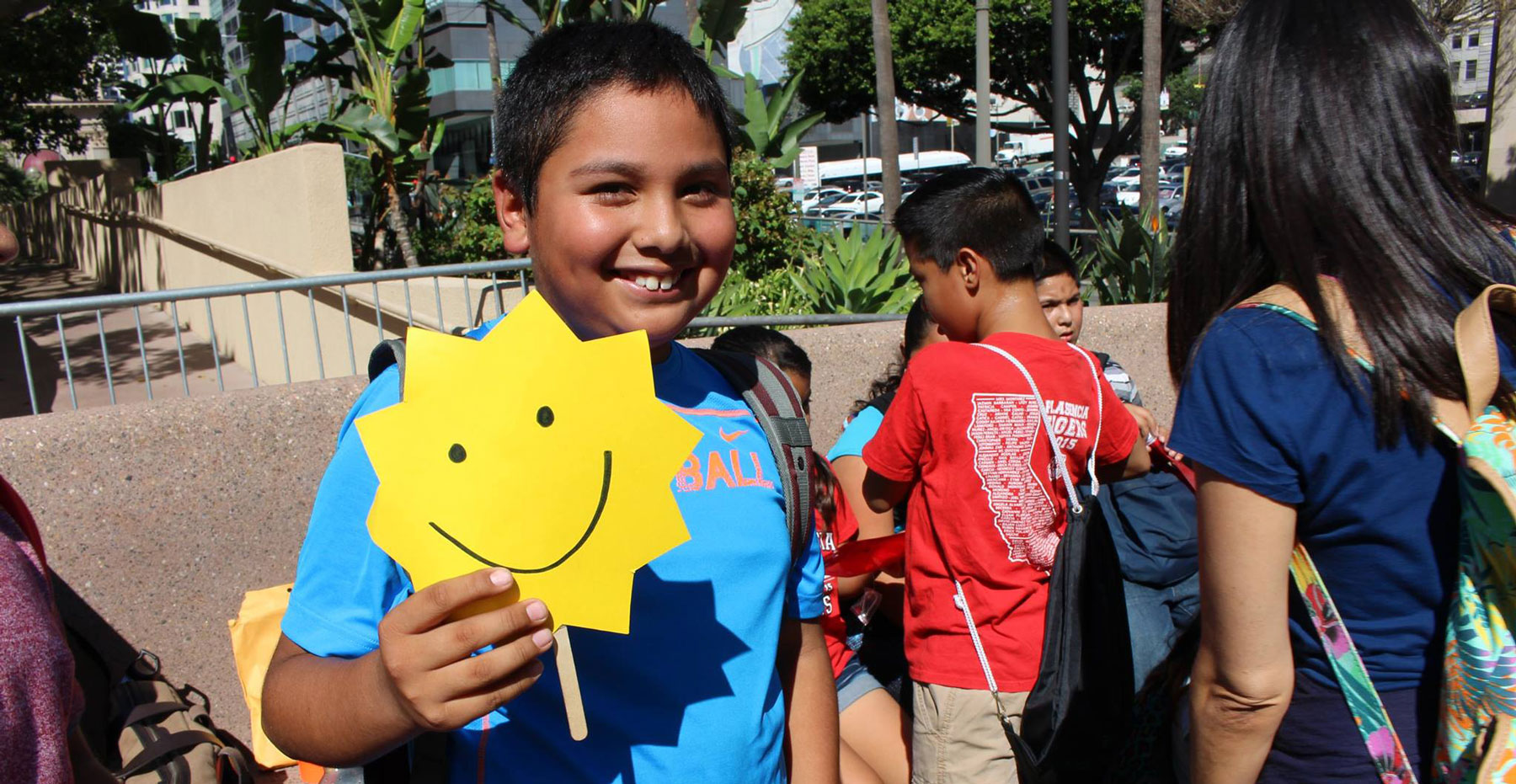Low-Wealth Solar Policy Roundup: Public Participation for Impacted Communities
How can I participate? This is such a simple question to ask when decision-making directly impacts you and your community. Yet, too often people interested in participating are met with numerous barriers. Public participation should provide impacted communities and other stakeholders a chance to provide input on the decision-making process.
This blog is part of a series on low-income solar policy and best practices across the U.S.
To truly support environmental justice and low-income communities, legislation and regulatory action alone are not sufficient. Policy must be informed by members of the community to ensure there are no knowledge gaps or misalignment of goals. For example, to establish an Office of Public Participation FERC is hosting a number of public listening sessions and a one day workshop to gather community voices and input.
We must think of public participation as a marathon, not a sprint. It takes time to develop a process and series of activities and actions that both inform and obtain the input of the public. Recently, many states and the federal government are looking for ways to increase participation in programs and the decision-making process.
Each month Vote Solar’s Access & Equity team hosts the Low-Income Solar Policy Call, where we bring policymakers together from across the country. We use the call to share best practices, advance learning, collaborate on ways to improve low-income solar program design, and celebrate each other’s wins.
This month we heard about the ways states and the federal governments are looking to increase public participation. Here’s what March’s call covered:
FERC Establishing an Office of Public Participation
The Federal Energy Regulatory Commission (FERC) announced a series of listening sessions and a workshop for interested parties to provide input on the creation of the Office of Public Participation (OPP) Docket No. AD21-9-000. The OPP within FERC will coordinate assistance to the public with respect to authorities exercised by the Commission, including assistance to those seeking to intervene in Commission proceedings.
FERC was established in 1977, as an independent regulatory agency, to regulate the interstate transmission of electricity, natural gas, and oil. Very little is known about FERC and what it does, and for everyday citizens looking to engage participating challenges of transparency and access arise. FERC regulates the sale of electricity at the wholesale level between companies in different states, and they also regulate the rates charged to transport natural gas through pipelines. What FERC does ultimately impacts consumers and the bills they pay to utility companies.
An Office of Public Participation has been on the books since the 1970s. However, FERC never requested for it to be funded or took time to establish one. Congress has directed FERC to establish an office and address key questions around how they will improve public participation.
LISTEN: FERC has held the following sessions so far to seek community input. You can listen in and hear what community stakeholders shared with commissioners:
- Landowners and Communities Affected by Infrastructure Development
- Environmental Justice Communities and Tribal Interests
- Tribal Governments
- Energy Consumers and Consumers Advocates
- Selected stakeholder panelists will be invited to convene on Wed. April 16 to provide input about each of these areas of consideration before the Commission. Learn more about the agenda for the April 16 workshop.
FERC is required by Congress to submit a final report on their progress towards establishing OPP. Written comments are due April 23, 2021, and FERC’s final report to Congress is due June 25, 2021.
Florida State Legislature: Bills to Watch
Florida kicked off its 60-day legislative session March 2nd and a top priority is addressing COVID recovery. What is exciting about this legislative session is unlocking solar to benefit Florida’s schools. This is an opportunity to not only save school districts money, but to also find ways to turn that savings into tangible benefits for students.
- COVID relief bill (HB 1435) Requires Office of Energy in DACS to establish process for utilities to provide financial assistance to residential customers; specifies required elements for each repayment plan offered; requires participating utilities to establish customer utility assistance fund; requires accounting report; requires utilities to use specified federal funds to provide direct subsidy payments to customers; authorizes residential customer to seek debt relief from other available resources; provides appropriation.
- 100% renewable energy for Florida (HB 283 and SB 720): Would make Florida 100% renewable energy-based by 2050. Also related to energy planning, SB 136 creates an “Energy 2040 Task Force” under the Public Service Commission to make recommendations about state energy policy.
- Disaster resilience: Several great bills focus on the potential for solar and battery storage to keep the lights on at critical facilities during emergencies.
- 100% renewable energy for Florida (HB 283 and SB 720): Would make Florida 100% renewable energy-based by 2050. Also related to energy planning, SB 136 creates an “Energy 2040 Task Force” under the Public Service Commission to make recommendations about state energy policy.
- Resilience for All: Resolution SR 1190 has been introduced expressing the Legislature’s support for investment in resilient infrastructure that centers the needs of low income communities who are most vulnerable to sea level rise and other climate impacts.

New York Legislature advances legislation to protect low-wealth families and communities of color
The New York legislature is advancing legislation that would protect low-to-moderate income families and communities of color from bearing the burdens of pollution.
This package of legislation builds on the Climate Leadership and Community Protection Act and altogether will advance environmental justice protections for communities of color in the state.
- Environmental Impact Statements S.1031B: This bill would require an environmental impact statement (EIS) for projects that may affect minority or economically distressed communities, and prohibits approval of projects that cause or contribute to a disproportionate pollution burden in those communities.
- Equitable Investment in Energy Efficiency S.3126A: Requires the hiring and training for energy efficiency programs from priority populations and environmental justice communities and requires the investment of energy efficiency funding in environmental justice communities.
- Public Participation Plan S.3211A: Requires applicants for major projects located in or adjacent to an environmental justice community to prepare and implement an enhanced public participation plan which meets enhanced notice and public participation requirements.
- Equitable Investment in Energy Efficiency S.3126A: Requires the hiring and training for energy efficiency programs from priority populations and environmental justice communities and requires the investment of energy efficiency funding in environmental justice communities.
- New Standards for Toxic Air Pollutants S.4371B: Requires DEC to promulgate air quality standards for seven toxic air pollutants and requires major sources of toxic air pollutants located in or near environmental justice communities to install fence line monitoring systems.
- Pollution Justice Act of 2021 S.4378A: Requires fossil-fuel burning power plants located in or near environmental justice communities and which operate only during periods of peak electricity demand to convert to renewable energy.
If you are interested in joining the monthly Low-Income Solar Policy Call, email Olivia Nedd at olivia@votesolar.org.
Learn more: Explore policy guidance from GRID Alternatives and Vote Solar in the Low-Income Solar Policy Guide.



